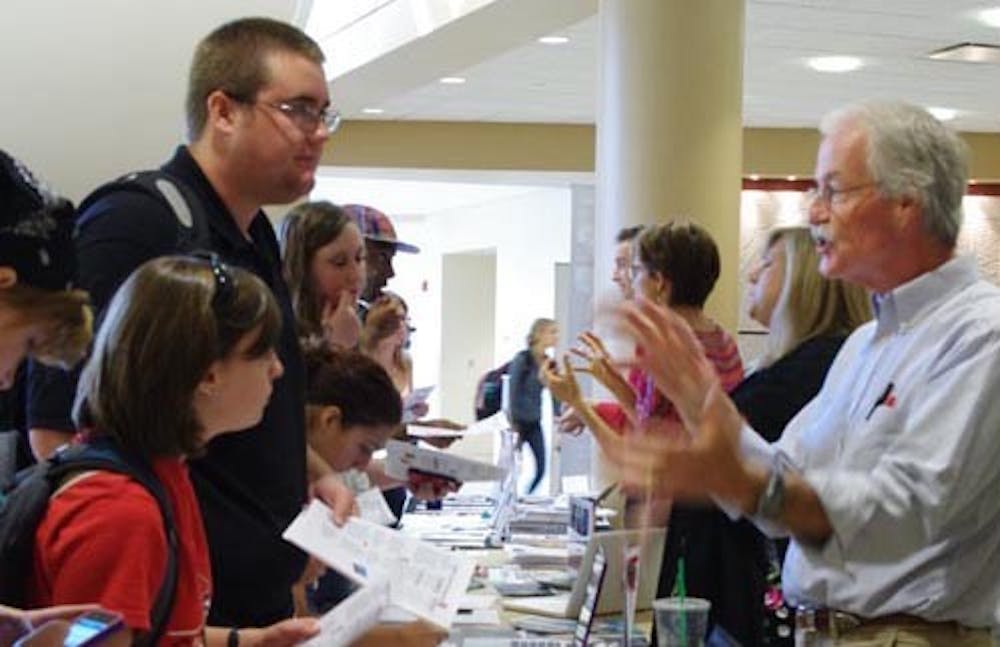Program leaders and past study abroad participants will represent more than 250 programs at the study abroad fair today.
The fair, which will run from 10 a.m. to 3 p.m. in the Atrium, will offer more individualized information for students interested in studying abroad.
“Primarily it is just an opportunity for students to connect on a more personal level with representatives of the programs,” said John Jensen, director of Study Abroad. “Many times you are getting info via email or online; this is an opportunity to talk to past participants and program leaders in person.”
The Ball State Federal Credit Union will also have representation available for students who have financial questions.
Jensen said every student should be able to study abroad and graduate in four years as long as they start looking early and prepare with academic advisers and financial aid.
“Now so many careers, whether they are located here in the United States or overseas, choose to have some type of international component to them, and students have to be better prepared for the global environment they are about to enter,” Jensen said.
Timothy Berg, an assistant professor of history, will represent Ball State’s Worcester, England Center for Summer 2013 at the fair.
“We’re going to have a lot of different programs represented so they can kind of treat it like a study abroad shopping mall,” Berg said. “They can go from table to table and pick up brochures and talk to the faculty. They can just sort of compare and contrast what will be best for them.”
Berg said the Worcester study abroad is a five-week program in which 20 to 30 students will travel to England and focus on humanities, art and history.
“Study abroad is one of those things where if you can afford to do it and make it work for you, then it is one of those things not to be missed,” Berg said. “It really extends your education beyond the classroom and teaches you a lot of life skills and life lessons like taking care of yourself and experiencing diversity and challenges.
“A lot of those things are intangible — they don’t really show up on the syllabus but they are important.”


